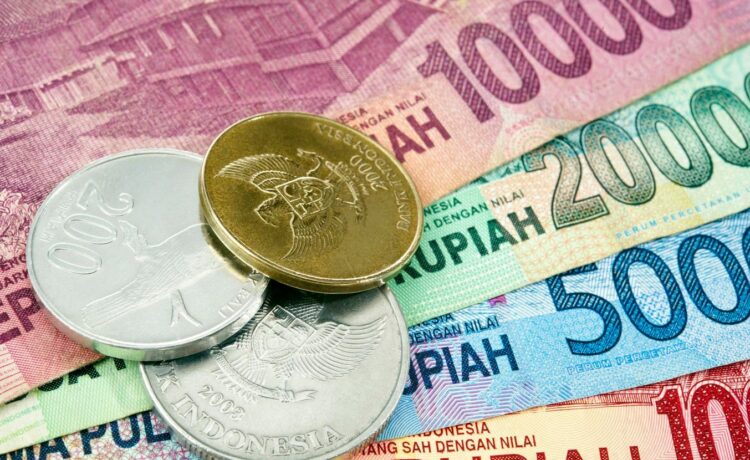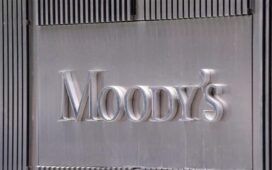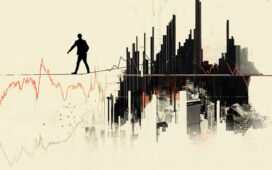getty
There’s a whiff of 1998 in the Jakarta air as investors flee Indonesia’s currency and the stock market.
The outflows are nowhere near those that toppled then-dictator Suharto. His downfall came amid the chaos of the Asian financial crisis. Massive street protests forced the military officer-turned-president to resign in May 1998.
Yet many voters who elected Suharto’s ex-son-in-law Prabowo Subianto in 2024 are suffering some serious buyer’s remorse. Prabowo also was a military man — an ex-general. And sadly, his stewardship over Southeast Asia’s economy prioritizes control over reforms to increase competitiveness.
Prabowo’s plan to water down the central bank’s independence and populist spending policies suggests he understands little about the forces behind Indonesia’s 1997-1998 crash. His strong-arm tactics toward international companies like Apple suggest Prabowo doesn’t know he operates in the most dynamic economic region anywhere — and that foreign CEOs have many other options.
You’d think the 1Malaysia Development Berhad (1MDB) debacle might have Prabowo thinking twice about transferring ownership of top state-owned enterprises to a new sovereign wealth fund — one that reports directly to him. The same goes for expanding the role of the military, reversing post-Suharto efforts to reduce the economic role of generals.
None of these steps will better position Indonesia to withstand President Donald Trump’s trade war. They won’t revive flagging demand from China for raw materials. They will do little to achieve Prabowo’s big election pledge to hasten growth to the 8% pace from today’s 5%.
The sense Prabowo is fighting the wrong battles has the rupiah falling to the weakest since the Asian financial crisis. And the central bank scrambling to put a floor under the currency via formal intervention.
“We expect investor sentiment in Indonesian risk assets could remain weak in the near-term, and caution that Indonesian corporate dollar bonds could see more volatility ahead from negative headlines and overarching macro concerns,” says CreditSights analyst Lakshmanan R.
Already, global funds have dumped a net $2 billion of Indonesian equities this year. And it’s no wonder why as Trump’s tariffs — and those to come — threaten to generate unprecedented headwinds at the worst possible moment from the global financial system.
Even worse is the bull market in uncertainty emanating from Washington. Officials in Jakarta, Bangkok, Kuala Lumpur, Manila and elsewhere not knowing the scale, timing or ambitions of Trump’s trade taxes makes it impossible for fiscal policymakers and central banks to strategize.
In Indonesia’s case, it’s the pre-existing conditions that matter most. From 2014 to 2024, Prabowo’s predecessor Joko Widodo put some key reforms on the scoreboard. Along with presiding over rapid economic growth and transformational infrastructure projects, Widodo achieved more than predecessors to eradicate extreme poverty in the nation of 281 million people. Under Widodo, Indonesia weathered the Covid-19 crisis better than many peers.
Yet critics claim that Widodo went too easy on dynastic politics, old-time patronage and changing laws to benefit his family. And, of course, he opened the door to an unpredictable successor hailing from the armed forces.
That successor is no longer enjoying the benefit of the doubt from global investors. At the end of 2024, overseas funds were teeing off Prabowo’s pledges to turbocharge economic growth and attract increased investment. Now concerns about Indonesia’s fiscal outlook and potential democratic backsliding have capital exiting rupiah-denominated assets.
The benchmark Jakarta Composite Index is down nearly 20% across Prabowo’s first five months in power, while the rupiah tests 26-year lows.
Indonesia recently resorted to a foreign exchange “retention” plan requiring natural resource exporters to deposit 100% of currency earnings into a special account at national banks for 12 months. Such bids to support currency stability and contain market volatility are rarely a sign of confidence. Analysts at Fitch Ratings observe that “Indonesia’s external liquidity — measured by the ratio of liquid external assets to liquid external liabilities — remains weaker than many ‘BBB’ peers.”
Investors might have greater confidence in Prabowo’s reform chances if he spent more time cutting red tape, creating jobs for Indonesia’s young population and moving the economy upmarket into high-value-added industries than tightening his grip on the economy.
Reports that Bank Indonesia will buy up state bonds through the secondary market has investors worried about the central bank funding public spending. This so-called “debt monetization” rarely ends well for developing nations. Hence the whiff of 1998-like turbulence setting back the clock on a nation that deserves better from its leaders.





